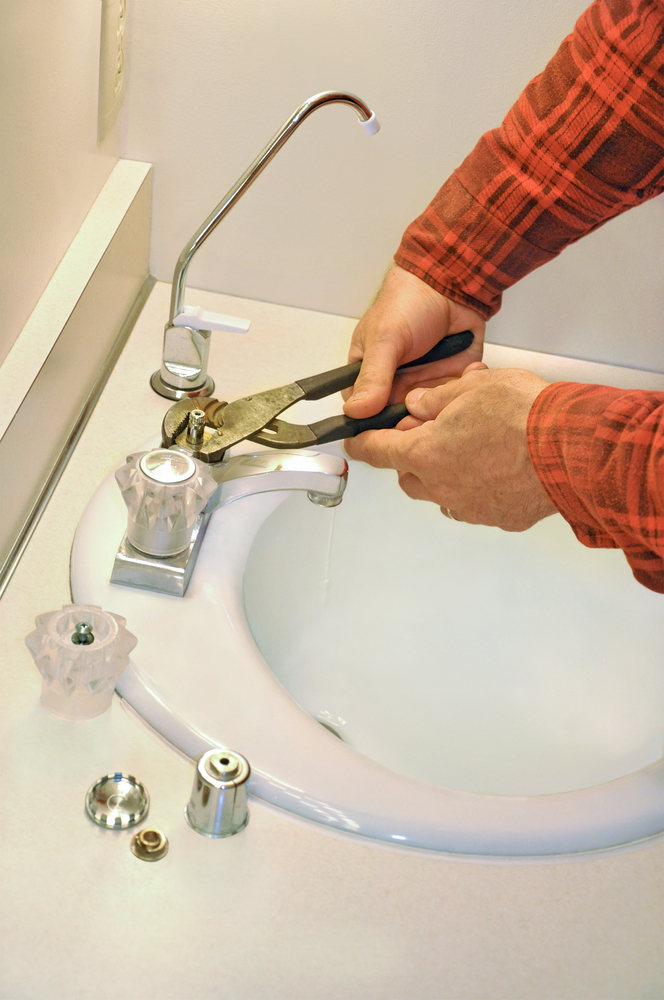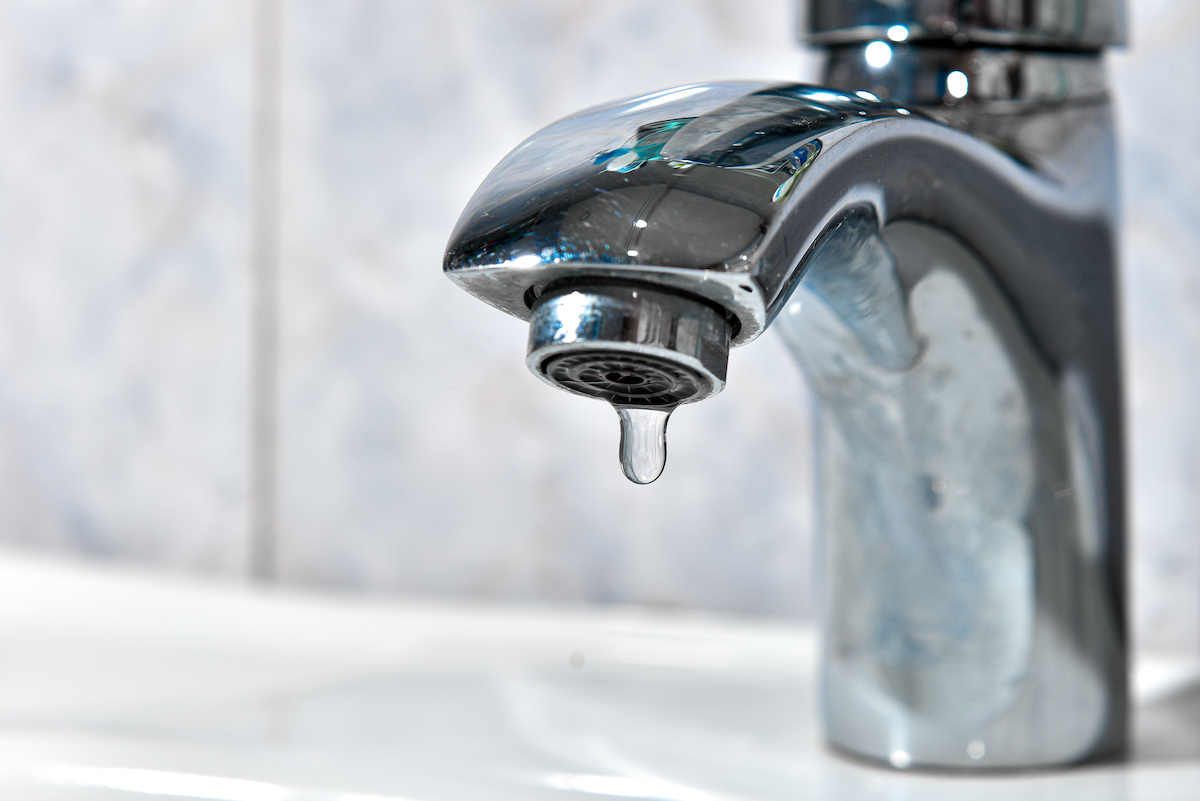Which It's Needed to Correct a Broken Faucet
Which It's Needed to Correct a Broken Faucet
Blog Article
Right here on the next paragraphs you might get lots of sound ideas concerning 4 Common Reasons for a Leaky Faucet.

Leaking taps may appear like a minor trouble, yet their influence surpasses simply the aggravation of the noise. From wasting water to sustaining unnecessary monetary costs and health dangers, overlooking a trickling faucet can lead to different consequences. In this article, we'll explore why it's crucial to resolve this typical house issue immediately and effectively.
Wastefulness of Water
Ecological Impact
Dripping taps add considerably to water wastefulness. According to the Epa (EPA), a solitary tap dripping at one drip per secondly can waste greater than 3,000 gallons of water per year. This not just strains water sources however also influences environments and wildlife depending on them.
Step-by-Step Overview to Fixing a Dripping Tap
Devices Needed
Prior to attempting to repair a trickling faucet, collect the necessary tools, including an adjustable wrench, screwdrivers, substitute components (such as washers or cartridges), and plumber's tape.
Usual Tap Issues and Their Solutions
Recognize the sort of faucet and the specific problem causing the drip. Typical issues include damaged washers, corroded shutoff seats, or damaged O-rings. Refer to producer instructions or online tutorials for detailed assistance on repairs.
Financial Expenses
Increased Water Expenses
Past the environmental effect, dripping faucets can blow up water expenses substantially. The gathered wastefulness gradually equates into higher energy costs, which can have been prevented with prompt repairs.
Possible Residential Property Damage
Additionally, long term dripping can result in harm to components and surface areas surrounding the faucet. Water build-up can trigger staining, corrosion, and also structural concerns if left ignored, leading to additional fixing costs.
Wellness Concerns
Mold and Mildew Growth
The consistent existence of wetness from a trickling faucet creates an excellent setting for mold and mildew growth. These fungis not only jeopardize indoor air quality however likewise posture wellness risks, particularly for individuals with respiratory conditions or allergic reactions.
Waterborne Illness
Stationary water in trickling faucets can end up being a breeding place for microorganisms and various other pathogens, increasing the risk of waterborne conditions. Impurities such as Legionella germs flourish in stagnant water, possibly leading to serious ailments when consumed or inhaled.
Do it yourself vs. Expert Repair work
Pros and Cons of Do It Yourself Repair Work
While some might try to fix a trickling faucet themselves, DIY fixings feature their own set of challenges. Without proper expertise and tools, do it yourself efforts can worsen the issue or cause insufficient repair work, lengthening the issue.
Advantages of Hiring an Expert Plumber
Working with a specialist plumber makes sure that the underlying root cause of the trickling faucet is dealt with successfully. Plumbers possess the know-how and tools to detect and repair faucet problems successfully, saving time and lessening the threat of more damages.
Environmental Obligation
Private Payment to Preservation
Taking duty for fixing leaking faucets aligns with broader initiatives toward water conservation and ecological sustainability. Every individual's activities jointly make a considerable impact on maintaining precious sources.
Sustainable Living Practices
By prioritizing punctual repair services and taking on water-saving habits, individuals add to lasting living methods that profit both existing and future generations.
Preventive Measures
Regular Upkeep Tips
To stop trickling faucets, execute routine upkeep such as cleaning aerators, checking for leakages, and replacing damaged parts immediately. Additionally, think about mounting water-saving devices or upgrading to extra efficient components.
Value of Prompt Repairs
Resolving trickling faucets as soon as they're observed avoids further water waste and prospective damages, ultimately saving both water and cash in the long run.
Influence On Residential Or Commercial Property Worth
Assumption of Well-Maintained Property
Maintaining a residential property in good condition, consisting of resolving upkeep concerns like trickling taps, boosts its regarded worth and worth among prospective buyers or tenants.
Impact on Resale Worth
Qualities with well-maintained plumbing components, consisting of faucets, command greater resale values in the property market. Attending to trickling taps can contribute to a positive impression throughout building examinations and settlements.
Conclusion
Attending to a trickling faucet exceeds plain convenience; it's an important step toward saving water, lowering economic costs, and protecting health and wellness and building. Whether through DIY repair work or professional support, taking action to repair dripping faucets is a tiny yet impactful means to advertise accountable stewardship of resources and add to a healthier, more lasting future.
Most Common Reasons for a Leaky Faucet and How to Stop the Drip
Whether it’s your kitchen faucet leaking or a bathroom faucet leaking, one leaky faucet can waste anywhere from three to 30 gallons of water every single day. If the constant drip-drip-drip doesn’t get your attention, your water bill will. The good news is that, by following a few simple steps, chances are pretty good you can fix the problem yourself.
Why is it dripping?
Before you start taking things apart, let’s break down some of the most common causes of a leaky faucet.
Bad O-ring.
A cartridge is a valve that controls the flow of water into the faucet spout. On cartridge faucets there’s an O-ring—the little disc attached to the stem screw that holds the faucet handle in place. If it’s loose or worn-out, it can cause your sink handle to leak. Of course, the cartridge itself could be worn out. If that’s the case, make sure you replace it with the exact same kind.
Corroded valve seat.
The valve seat connects the faucet and the spout. If the leak seems to be coming from the spout, it might be because a buildup of water sediment has corroded the valve seat.
Worn-out washers or seals.
A leaky spout could be caused by a bad washer that rests against the valve seat. It’s just a matter of time before friction takes its toll. It could also be the wrong size washer or one that’s been installed incorrectly. Water sediments can also corrode inlet and outlet seals.
Water pressure.
If the faucet only drips now and then, or when you turn the handles a certain way, you should probably check your home’s water pressure.
Loose or broken parts.
The adjusting ring and packing nuts in the stream screw can become loose over time, causing your sink handle to leak. Try tightening or replacing the packing nut. If the leak is coming from the pipes underneath the sink, you probably have a broken pipe or fitting. If that’s the case, you should definitely call a plumber.
Know your faucet.
Faucets come in a variety of types. Each one has its own assembly—and its own possible causes of leaks. Learning about the four most common kinds of faucets will help you know how to take them apart and make any repairs.
How to stop a leaky faucet
Fixing that leaky faucet doesn’t have to take a lot of time, money, or expertise. It’s usually a simple matter of replacing a worn-out washer or gasket, a loose O ring, or another part. Chances are really good you can do this yourself if you follow these simple steps.
Shut off the water.
Before you tackle the faucet, cut off the water supply to the sink. There should be one valve for hot and one for cold. Hand-turn them clockwise with your hands till they close. If there are no valves under the sink, head to the basement and shut off the main water supply to the house. Then turn on the faucet until it empties out the water that’s still in the line and you’re ready to start. It’s a good idea to cover the sink drain with a plug or a rag so you don’t lose any small pieces and parts while you’re working.

As a serious person who reads on Why Are My Faucets Dripping (And Can I Fix It Myself)?, I imagined sharing that article post was worth the trouble. If you appreciated our blog post kindly consider to pass it around. Thank you for being here. Come back soon.
Report this page